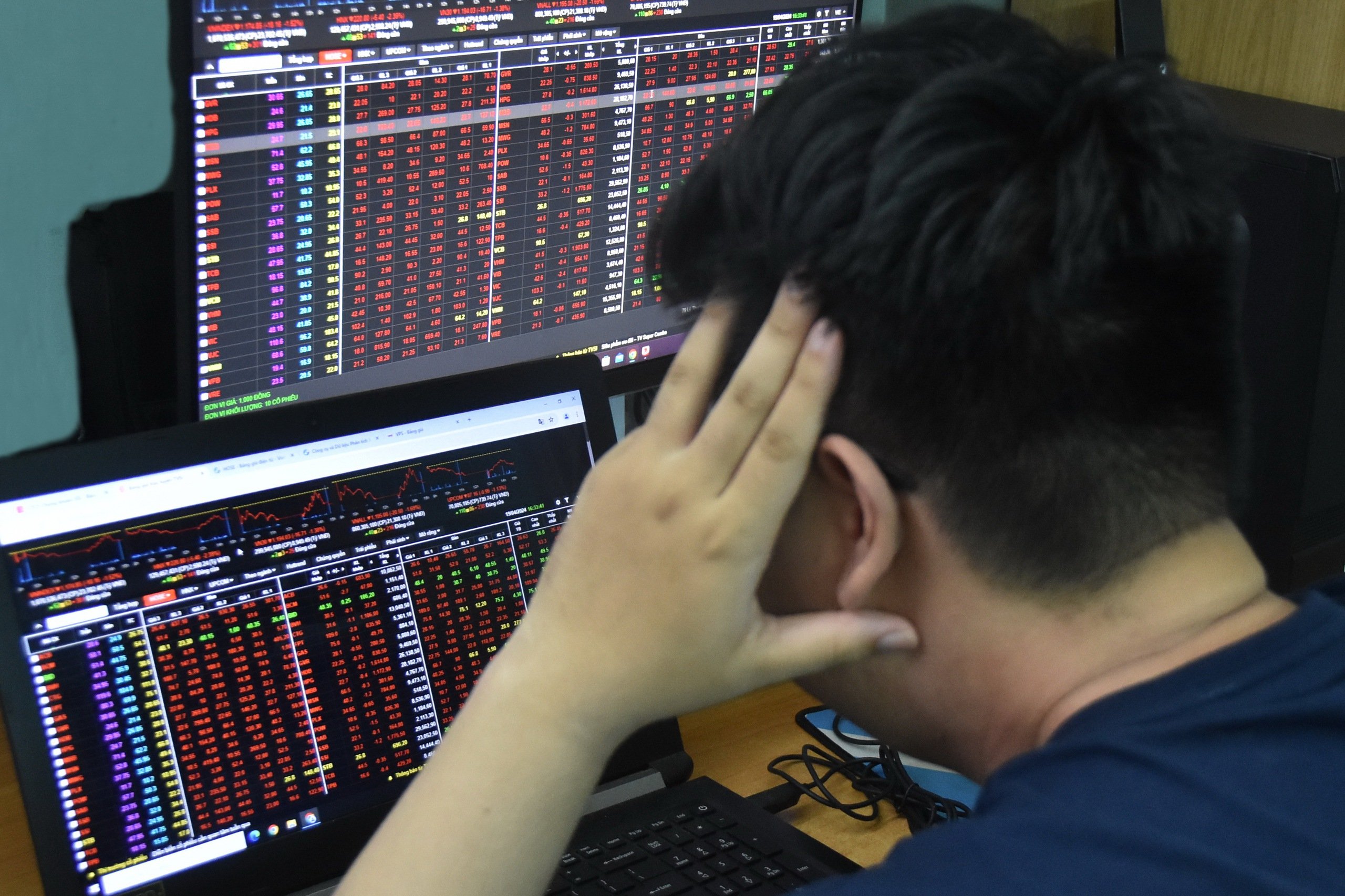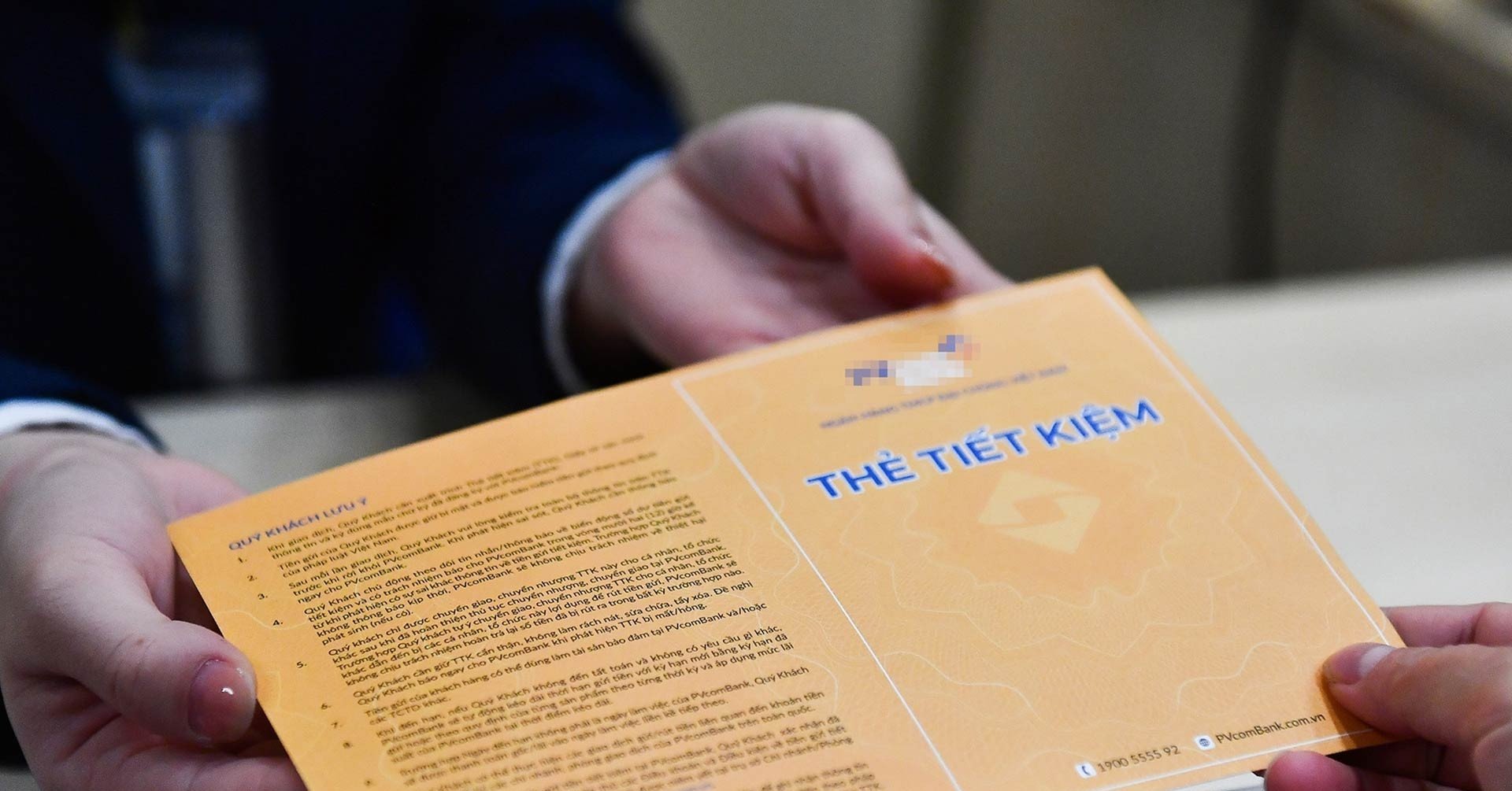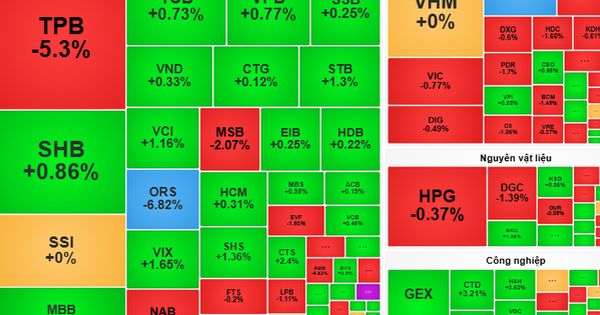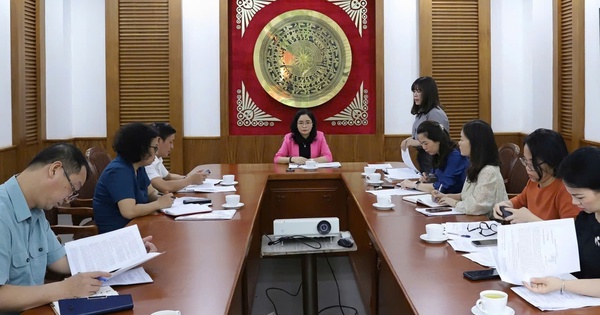After 4 consecutive weeks of increase, domestic stocks reversed and decreased sharply last week. VN-Index fluctuated for many sessions but could not overcome the resistance level of 1,280 - 1,300 points. In the 2 sessions of strong decrease last week, liquidity increased dramatically. This shows that large investors and foreign investors have proactively taken profits and withdrawn money from the market when they felt that risks related to interest rates and exchange rates were returning.
It's not just profit-taking pressure.
Meanwhile, domestic individual investors were quite confident, "weighing" all the shares sold by large investors and foreign investors during the sessions when the market fell sharply. Typically, at the end of the week (May 24), individual investors net bought shares worth more than VND2,700 billion; while organizations, securities companies' self-trading groups and foreign investors net sold a total of more than VND2,600 billion.
"Foreign investors' net selling pressure is a factor that needs attention. Although they have been net sellers continuously since last year, the speed and volume of selling are still maintained at a high level," commented Mr. Vo Kim Phung, Head of Analysis Department - BETA Securities Company.
Mr. Dinh Quang Hinh, Head of Macro and Market Strategy Department - VNDIRECT Securities Company, said that short-term risks of the stock market are increasing when receiving some negative information both domestically and internationally.
US macro data released last week - such as the PMI (purchasing managers index) and lower-than-expected unemployment claims - showed that the US economy is still growing strongly.
This raises concerns that the US Federal Reserve (FED) may delay cutting its policy interest rate to continue fighting inflation. This is a disadvantage for other currencies in the world, including VND.
Domestically, exchange rate pressure is increasing again, despite the fact that the State Bank has sold a large amount of foreign currency to intervene, and organized many gold bar auctions to cool down the market and attract a large amount of VND.
Last week, the interbank overnight interest rate exceeded the threshold of 5%/year; the State Bank also increased the open market interest rate (OMO) by 0.25 percentage points, to 4.5%/year... These factors put pressure on stock investors, who are concerned that stabilizing the exchange rate may make interest rates no longer "cheap".

If VN-Index loses the support level of 1,250 points, a deep correction scenario may return. Photo: Tan Thanh
Not worth worrying about?
Mr. Tran Hoang Son, Director of Market Strategy - VPBank Securities Company, commented that the exchange rate in the short term will continue to be under pressure as the FED delays the process of lowering interest rates. Along with that is the impact from the world gold price reaching a peak, the demand for gold remaining at a high level and the recovery of import activities increasing compared to the same period last year.
"Exchange rate is one of the variables that can affect the performance of the stock market. Looking back from 2008 to 2023, every time the exchange rate increased by more than 2%, stocks had a high probability of adjusting down. Since the beginning of 2024, the exchange rate has fluctuated by more than 4.6%. This is the indirect impact that causes foreign investors to continuously sell net" - Mr. Son analyzed.
In the context of increasing short-term risks, VPBankS experts predict that if VN-Index loses the support level of 1,250 points, a deep correction scenario may return.
From a management perspective, Mr. Pham Chi Quang, Director of the Monetary Policy Department - State Bank, said that all difficulties and challenges of the domestic foreign exchange market are only short-term. In the coming time, with the positive recovery of exports, the supply of foreign currency will be more abundant.
"The recent sharp increase in foreign currency futures purchases by businesses is a factor that reduces future demand, thereby improving foreign currency supply and demand. The international financial community maintains its view that the FED will likely cut interest rates by the end of 2024, thereby reducing devaluation pressure on currencies around the world, including VND. Many international organizations predict the possibility of VND appreciating again when these fundamental factors are gradually realized," said Mr. Pham Chi Quang.
Regarding deposit interest rates, although they have been continuously increasing since March, the general level remains low. Many commercial banks have increased their savings interest rates by 0.2 - 0.5 percentage points for all terms, mainly short-term terms. The input interest rate level is still lower than the pre-COVID-19 period, so there is no concern about the monetary policy reversing and increasing, but it remains low.
According to Mr. Dinh Duc Quang, Managing Director of the Monetary Business Division - UOB Vietnam Bank, the current 12-month deposit interest rate at state-owned commercial banks is only about 5%/year, still lower than the period before the COVID-19 pandemic. However, too low an interest rate is not necessarily good for the economy. When the interest rate increases, foreign investors will see that it is profitable to keep money in Vietnam, so they will give up the idea of withdrawing capital and continue investing.
"The VN-Index may have certain downward adjustments, but if we look at the recovery and growth momentum of the economy, the market trend is still positive in the medium and long term. The industries and fields with prospects for the coming period are software, telecommunications, retail, industrial park real estate, logistics, and exports," Mr. Dinh Duc Quang assessed.
Although input interest rates have increased and exchange rate pressure remains high, economist Dr. Dinh The Hien believes that stocks are still attractive because real estate investment has not really recovered and is even difficult. However, when investing in stocks, one needs to look at the long term and have a strategy to avoid short-term declines.
Dr. Dinh The Hien emphasized: "Even if the mobilization interest rate increases by 0.5 - 1 percentage point in 2024, it will still be low. The increase in interest rates is mainly to attract savings deposits, meet the credit growth needs of the economy, and is also a positive aspect in the medium and long term. When the economy grows, businesses operate better, and securities also benefit, so it is not necessarily a cause for concern."
Faced with signs of increasing short-term risks, experts recommend that investors reassess their current portfolio status and prioritize risk management. Short-term investors who are using leverage or holding a high proportion of stocks should take advantage of technical recoveries to reduce their positions and reduce their stock proportions to a safe level to manage portfolio risks.
Source: https://nld.com.vn/ti-gia-lai-ngan-da-tang-cua-chung-khoan-196240526193928674.htm































































































Comment (0)